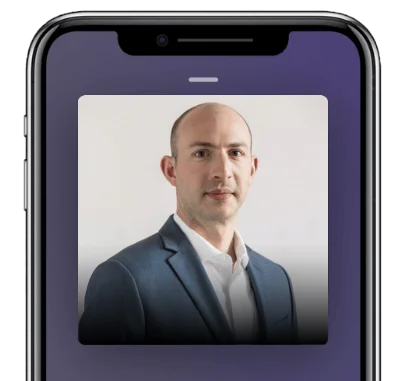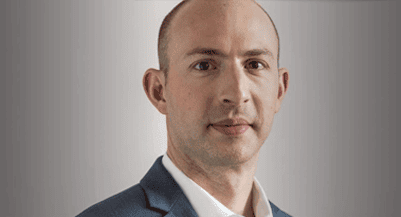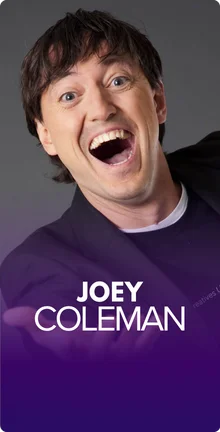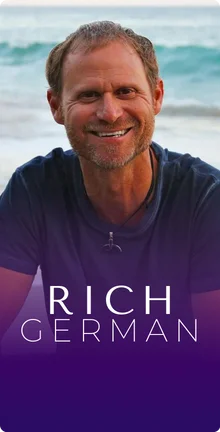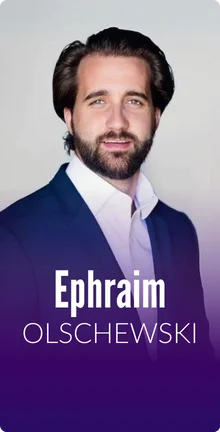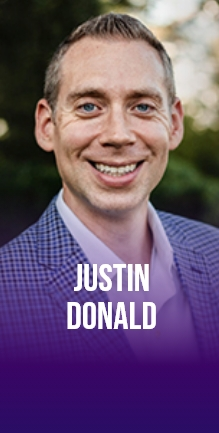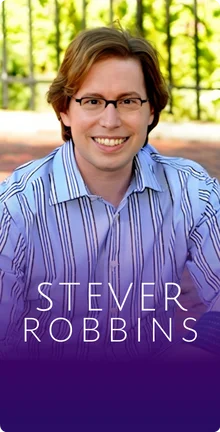In this Episode
- [00:39]Stephan introduces Michael Zipursky, the CEO of Consulting Success. Aside from consulting hundreds of clients and helping people through his books, one of Michael’s most significant achievements is implementing a time-flexible, well-balanced lifestyle.
- [04:22]Michael talks about Consulting Success’ progression on how they started as a blog to now, a worldwide leader in coaching and training entrepreneurial consultants.
- [10:49]Michael and Stephan discuss hiring people as an investment to make a bigger impact on you clients.
- [15:11]Michael explains why as a long-term mindset in all of his companies, it is all based on relationships.
- [19:38]Stephan and Michael talk about how NPS metric can be used in measuring customer relationships with the business.
- [26:02]Michael shares his and his cousin, Sam Zipursky’s background story of how they started a business together.
- [30:15]What interested Michael to become a reader when he was young?
- [36:12]Michael tells us the many benefits he gets of doing a daily morning exercise run for health and mental aspects.
- [43:10]Stephan and Michael describes how listening to your intuition is powerful especially in running a business,
- [50:45]Visit Michael Zipursky’s website at ConsultingSuccess.com, to get a free guide into the consulting world, check out his books, and learn more about him.
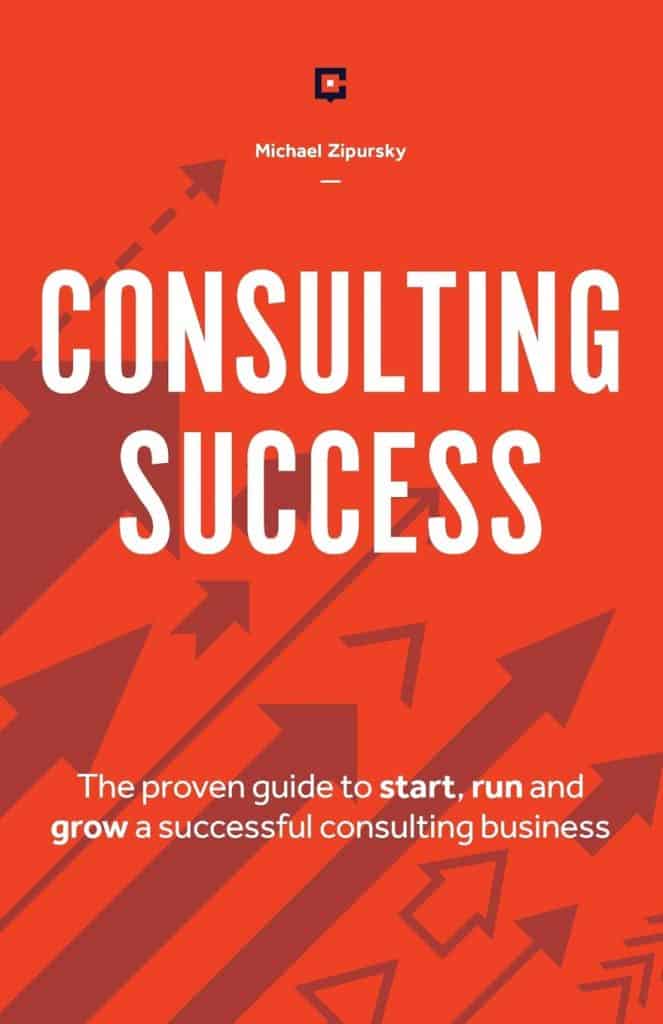
Michael, it’s so great to have you on the show.
Hey Stephan, it’s great to be with you and always enjoy our conversations.
Likewise, and I am just super grateful to have you on the show. I know I was on your show. And I enjoyed that. That was a little while ago now. We’ve been talking about having you on for a while and finally pulled it off. So thank you for joining.
Yeah, I appreciate it. Thank you.
Let’s start by talking about why consulting, why not create a product company, or an agency or a big e-commerce type business, something that’s more scalable? Consultancies seem not very scalable, and I speak from experience because I’ve been an SEO consultant for a very long time. Although I have a team and service more clients than I could handle on my own, it’s still very hard to scale business. So, why pick that?
I think one of the things is risk aversion to a degree. Running a consulting or services-based business doesn’t require a lot to get started. I’ve been consulting for 21 years, and when I first got into the consulting world, I was just entering university. And we, my cousin Sam, who’s my business partner, didn’t have a lot of resources to put behind what we were trying to accomplish. We did run a few agency types of models. In those early days, we first had a web development and design company. Our second company was around visual branding and design and some marketing, and then from there went more into lead generation. And then, about ten years into that journey, we realized, “Hey, let’s try and figure something out that we can do online as a way to allow us to travel and live and work anywhere that we want to.”
Because for us, that was a big deal and something that we always wanted to do. So we started Consulting Success, which was a way to share our stories of running consulting businesses, the good, the bad, and the ugly. But back to your question, I think profitability from day one, or as quickly as possible, less risk, not holding inventory, to me, these just seem like things for someone back in the 20 years ago or so, who wanted to be able to live and work anywhere. Just not having a lot of mental inventory or physical inventory, the consulting business resonated. I think the other big thing is, I’ve always been a teacher. I’ve enjoyed teaching, working, helping others, and listening and providing different perspectives and recommendations. That just lends itself very well to the consulting industry.
How do you show this teaching expertise in your business? Are you producing courses? Are you doing group coaching? Individual one-on-one coaching? I’m curious what this looks like.
If you don't want to be the busy, overworked entrepreneur, work 'on' the business, not 'in' it. Share on XHere’s the progression, about 13 years now, where we’ve been doing this. Consulting Success started as a blog, there was no monetization, and there’s no real plan on how to make that work. But we just thought, “Let’s share our stories. Let’s share what’s working and what isn’t working. Hopefully, we can help make an impact and help people to succeed.” And we had feedback from the community that started to build as we put out this free content saying, “Hey, these are great articles, but do you guys have a course?” And we said, “No, we don’t, but we can create one.” So we created a course for people sharing how you can go from being an employee or in the corporate world to creating a successful consulting business.
We had clients in that program who said, “Okay, this is great. I’ve achieved $100,000 a year, and I’m making great progress. I’m feeling much more focused and clear on what I need to do. Do you offer coaching?” And we said, “No, but we can create a coaching program.” And so we started a coaching program. And it began just doing one-on-one coaching, which later we looked at and said, “Yeah, this is not scalable. We can only make so much of an impact.” We then structured a coaching program where we could work with more than one person at one time. Fast forward to today, where we have what we call the Clarity Coaching Program. We now have 500 consultants or more go through that program, and we have coaches that have been trained and certified through our framework. We’re able to work with consultants worldwide in many different industries and do it in a much more scalable and enjoyable for everyone involved.
Very cool. That’s a great progression. Certification seems like a good evolution from courses because you can charge more, but you can deliver something a lot more tangible for somebody. It’s kind of amorphous to provide some training on something, and then somebody feels more skilled or more resourceful. But if they have that stamp of approval from you, and that is worth something, like it’s a standard, that’s a bar that is set quite high. Then they might get business that they wouldn’t have otherwise gotten and maybe even lead flow. Do you have a directory or something like that?
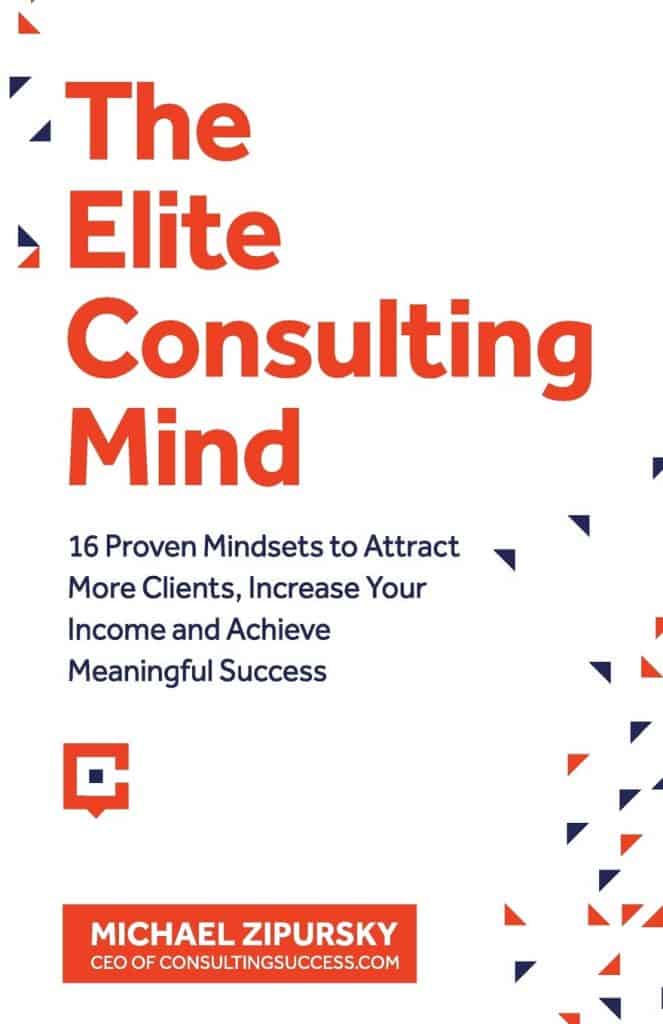
Right now, this is just for the coaches that work in our program to teach the Consulting Success Framework to clients of the Clarity Coaching Program. Down the road, we might decide what we think about in terms of developing a more structured kind of certification program for other consultants or other people in the industry. But a little while ago, we got clear that we wanted to bring greater structure to our actual program. In one way, teaching and having a greater impact on more people was to standardize where we saw the best practices and where we saw the greatest results. We developed two physical books, which we call the Consulting Success Framework. And so every coach that ends up working with our clients in that program, which I’m still involved in working directly with clients as well, go through learning and training on those two Consulting Success Framework books, as part of our training protocol and program before they can work with clients. And we just found that that’s been very important for us in terms of scaling because it’s not just a whole bunch of loose ideas or materials. Everything is documented, has a very specific order and a progression. That helps us ensure that our clients are achieving consistent results as they go through the process.
Some folks will call it an ascension model, where you go from this to that, to this to that, and then you’re just working your way up that ladder. As you work your way up, you become more profitable, generate more revenue, become more scalable, have more team, and become less part of the day-to-day delivery and more of the kind of owner visionary. Is that kind of your model as well that provides that kind of ascension?
It’d be a little bit different. If we look at the ascension model, ours has now been 13 years. So it’s been a very slow progression if you look at it. It’s not like buy this book, and then get this course, and then get this coaching. We do see that progression, although it’s not necessarily always intentional, we have people who listen to the Consulting Success Podcast or read one of the books that we put out there, and they might buy and come into our Momentum online course, which is for people who are newer in the consulting world, and then get into the Clarity Coaching Program. But we also have a lot of people who have been consultants for many years, they have a team of five or 10 or 30 people, and they’re doing $10 or $15 million a year, as well as others who are just out of the corporate world, they’ve had an executive position, and they want personal support and coaching. So they go straight into the Clarity Coaching Program.
It’s not that we have one of these; I’ll call it “internet marketing: very clear, buy this lower price thing, and then a little bit higher, a little bit higher.” We don’t move people through there; we put out just a lot of content and ideas. And then we just want to meet people where they are. And so we always encourage people to reach out to have a conversation. And then we can see how we can best support them. But I think the latter part of what you mentioned, Stephan, in terms of that progression, maybe internally, where I started that I was doing almost everything in content creation and working one-on-one with clients. Certainly, over time, what I’ve realized, and I think a lot of entrepreneurs kind of go through this mindset development as well, is where you initially feel like you don’t want to take on more risk or more structure or more infrastructure that you need in terms of teams. And that’s why you want to be a solo consultant or an entrepreneur, and you don’t want all of those pieces moving around. You want simplicity.

But what I’ve realized over the years is that once you get to a certain stage, create more freedom and more flexibility, and spend time working on the areas that you truly can add the greatest value in. You enjoy it the most. That’s actually where our team does become powerful. That’s actually where having SOPs and structured systems and processes allows you to not only kind of buy some of your time back, but it allows you to start working on the business or kind of over the business, not just in it. And that’s where the real strategy or the real enjoyment comes because you can make a much bigger impact. After all, now you have time to create new ideas or new training, or new approaches that have a bigger impact on your clients. Whereas if you’re only just doing the work yourself all the time and don’t have that ability to take a step back, it’s very hard to make greater developments because your capacity is reached very quickly.
Dan Sullivan calls this “the rugged individualist” where you’re wearing many hats, trying to do everything themselves, and they burn themselves out eventually.
I think a lot of people rub up against that. I remember early in my career as a consultant, and I was very against the idea of hiring an assistant or hiring anybody or bringing anyone on. Because number one, I told myself, it’s going to be money out of my pocket. And I didn’t recognize that I was losing money every day and every hour that I was working on low-value tasks, so shifting that to bringing somebody on not as an expense but actually as an investment was very transformational in my development as an entrepreneur. And the other part I think a lot of people run up against is, “Well, it’s faster for me to do it myself. So why would I try and bring somebody else on if I can just do it myself? Because I’m so good, the clients are hiring me and my knowledge of my expertise.” But what I always push back on when I speak to clients about this is name me one very successful consulting firm that is well-known where the founder is doing all the work. Like go to McKinsey, is the CEO doing all the consulting? No, you typically won’t see that as the business scales and grows. As the founder or the owner, you have to find a way to extract your expertise and create value for the marketplace. Because when you do that, you’re going to be able to have a bigger impact on those you truly want to serve and add value.
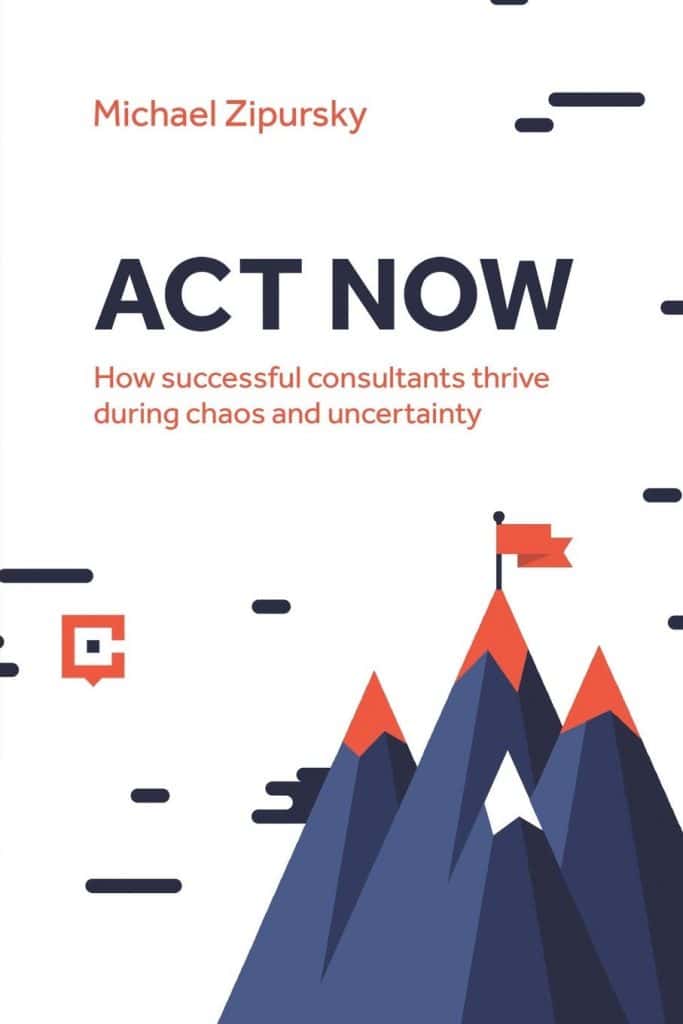
For sure. That makes total sense, and yet, a lot of folks put unnecessary roadblocks in their path. They paint themselves into a corner. I’m curious, what inspired you to create all of this content? You are prolific with content, and you have a blog, a podcast, all the resources that you’ve made available. It’s pretty extensive. How much content are we talking about here?
There’s a lot. We probably have close to a thousand articles on our site, which I’m sure you’ll tell me, Stephan, isn’t necessarily a great thing for SEO. Focus more on really good quality pieces. But for us, from day one, I think it’s that teacher mindset, even if it wasn’t intentional, it’s just lead through demonstration. When I now break it down, I’ve identified many different ways to demonstrate value to the marketplace. And people often ask, “How can you demonstrate value to people that you don’t have a relationship with yet?” And because, of course, if you’re working with a client, you can demonstrate value by doing great work. If you receive a referral or an introduction, then there’s a kind of inherent value being transferred through that introduction or referral.
But if you don’t have those things, how do you demonstrate value? And suppose you’re engaging in conversation with a prospective buyer. In that case, you can also demonstrate value by asking great meaningful deep penetrating, or thoughtful questions that get the other party to think and see things they haven’t considered before. But aside from that, if you aren’t talking to someone you want to have a relationship with, how do you demonstrate value? That’s where I think content shines because you can demonstrate value to somebody who you’ve never met before. In doing so, you don’t have to tell them how great you are. You can just simply show your expertise through that content and whether it’s video, audio, a book, or a short article.
Or a newsletter.
Exactly. It can be anything. One thing that I learned from Perry Marshall many years ago is the idea that different people consume content in different formats. Some people will resonate better with an article; others will resonate better with a podcast; others will resonate better with a video. We’ve tried to create this content in many different formats because people will consume it in different formats. Sometimes, an article might strike them and resonate more, and other times a video will do better. What we’re just trying to do because everything that we do is driven with the long-term mindset; it’s based on relationships. The company that we started in Vancouver and later went over to Japan opened a branch office called Kankei Culture. And “kankei” is the Japanese word for relationship. My next company, a lead generation company for professional services firms, I called it Relagy, and “Relagy” stands for relationship strategy.
Lifestyle first before business: family, community, and personal development first, and the rest will follow. Share on XSo everything that we do is just about relationships when we think long term, and I think that drives us to lead with good quality content that we hope and believe will inspire, educate, and motivate and get people to become more successful, even if they don’t want to become clients. And I give this example of one client that, in the last kind of year, reached out, became a client, and came into our Clarity Coaching Program. And he told us, he said, “I’ve been consuming your content for ten years.” And I was blown away, and I recorded a little podcast episode of this because it was a video for me. People might look at it and go, like, “Well, your marketing sucks, guys.” Like, “Why would it take somebody ten years to become a client?” But I looked at that, and I was like, “We’re doing great. If we were able to keep somebody engaged over ten years, it means that we had so many opportunities to stop following up or to stop creating value, but we didn’t.” And when the time was right for him, he reached out, and he became a client. He’s now been a long-term client; it wasn’t just for a week or a month. And we value that relationship. So that’s our approach to everything that we do. And so we just continue to put out more and more content.
That’s awesome. I’m curious, how do you measure success in terms of relationships? Is there a metric or an OKR?
We look at certain things. Of course, we’re looking at our overall lead generation. How many leads are we generating? How many sales conversations or enrollment conversations that we’re having for our programs? That gives us a sense. The other is even in the conversations that we have or through the different channels, whether it’s LinkedIn. Pretty much every day, I get a message from somebody on LinkedIn, just saying thanks for the podcast or the articles. The content has resonated with them. Even if they don’t become clients, that’s fine. We measure that as part of success. Also, in the conversations we do have with people, we listen to what they’re saying.
As the owner, you have to find a way to extract your expertise and create value for the marketplace.
Oftentimes, they’ll say, “Oh, I’ve read all your books, I’ve listened to every podcast episode.” We have people say, “I was driving from x to y, and just kept listening.” That, for us, tells us like a sign of success. And then the other things that we do look at is in our programs when people are coming through, we have two different phases of our Clarity Coaching Program, and we look at the percentage of people that go from phase one to phase two, as a way of are we able to continue delivering value for people. And so we look at those things, but overall, it’s interesting to kind of think about, is there a way to develop a relationship metric? Can you have something that would tell you how you’re doing, and that’s not saying that we’ve formalized? But we do have many different inputs in the business that we talk about in our weekly team meeting that we’ll review as part of our scorecard.
Are you familiar with NPS, Net Promoter Score?
Yeah.
What do you think about it?
We’ve never used it. I’m familiar with it, but no, we haven’t used it. Do you think that would be something that would help us create a connection to how well you’re doing in relationship? Or is it more about just how people feel about the brand? What are your thoughts on that?
I’m mixed. I had my first experience with a net promoter score at Covario, which acquired my previous company, and I thought it was better than nothing. I thought it was good. But then I interviewed Jared Spool on my other podcast on Marketing Speak, and he’s world-renowned usability and user experience expert. And he just railed on NPS. He just said it’s the stupidest thing, and he gave some compelling reasons, and then he explained what you could do instead. He swayed my opinion for sure. So it’s better than nothing. If you have nothing to track the client or customer sentiment, yeah, NPS, but you could do better. So listen to that Jared Spool interview if you have a chance.
I guess we do our own format of that, which is in both of our main programs, both mine Momentum and Clarity. We do send out surveys to people, we have standardized questions, and we will look at that feedback. Based on that, engage with that customer client, and look at how we can make improvements. But yeah, we’re not using formalized scoring on a metric like an NPS.

The only question that matters on NPS as far as referability and the value of that client relationship is “How likely are you to refer us, our company, consultancy, to friends, colleagues, etc.?” And anything below an 8 is no bueno. A 9 or a 10, those are highly referrable, those are advocates, but 7 and 8 are neutral. And 6 and below are detractors. You think, “Oh, 6 out of 10? That’s not too bad.” No, they don’t like you.
It’s really interesting, right? Because there’s a whole discussion around, what do you then do? So let’s say that somebody is a 7. What steps can you take? Are there any resources for listeners? I’d love to know. We haven’t done it, so we don’t know where we would score. But let’s say somebody is at a 6 or a 7. What would you tell them to go and read or to learn about so they could work on improving that?
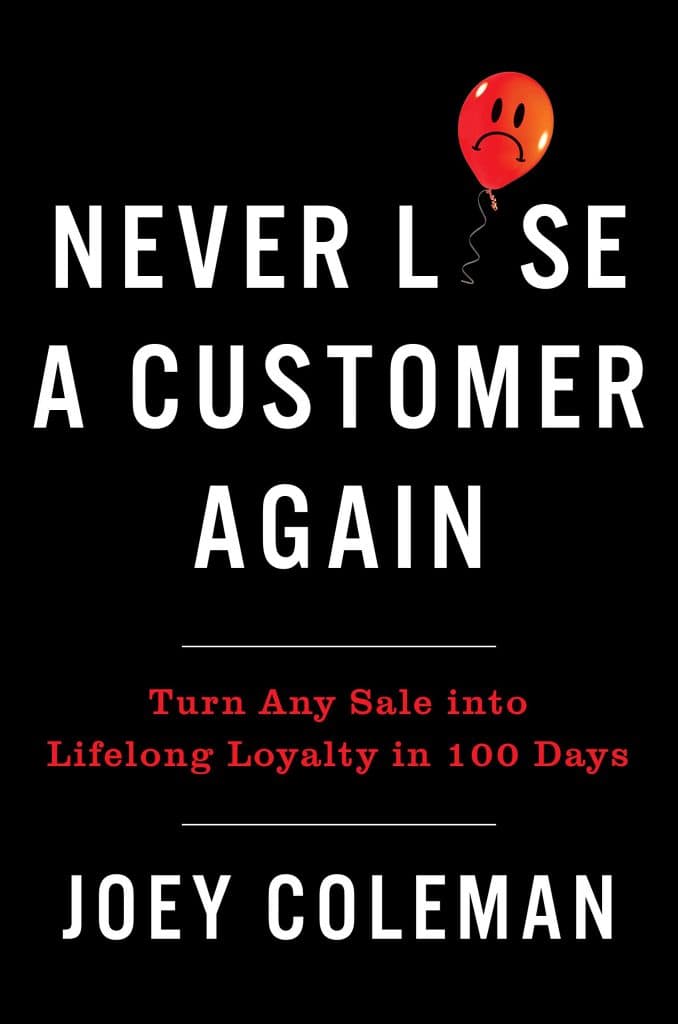
If their average NPS score is a 6, or 7 or not a 9 or 10, I would say, learn from Joey Coleman. You could start by listening to my interview with Joey on this podcast. He’s the author of Never Lose a Customer Again. He has a 100-day onboarding methodology for surprising and delighting your new clients so that they’ll stick around. And even if it’s a client that’s been with you for several years, you can’t assume that they’re just going to stick around forever because you might not have made it sticky enough for them. So I would say this book and his stuff, has his intellectual property is relevant for everybody, even if you’ve worked with the same clients for ten years.
It’s a great suggestion. Because we do have many long-term clients that have been with us for six years, or I think that’s probably our longest in terms of our program, which is almost from when we started the first version of that program, but you never know. And so, getting some insight into where you can make improvements, for me, that’s one of the most exciting things about entrepreneurship and being an entrepreneur and running a business. There’s always room to improve. It doesn’t matter how good you are, how big you are, whatever the metric is that you’re using for success, there’s always room for improvement, and always mistakes that are going to be made and then learn from. And to me, that’s exciting.
Cool. So I’m curious, how much time do you put into your weekly newsletter? For me, I have this Thursday Three Newsletter that I have my team write. It looks like I’ve written it, but I just gave them access to a tool called Pocket, which is a bookmarking application. They know what I’m bookmarking, and they use that as fodder to write content on my behalf. So that’s like three different things, that’s the Thursday Three, something that intrigued me, something that inspired me, and something that challenged me. They nail it every time, pretty much, and I do a quick review before it gets published. But yeah, I extricated myself a long time ago from writing my newsletter. Do you write your newsletter?
No, I don’t. So very similar to you, several on our team do that and do a great job. There’s one main newsletter but when people come into our world, what often happens is they’ll grab our Consulting Blueprint. And when they come into that, there’s a series of emails almost like an autoresponder that takes them deep into my early days of building a consulting business. I tell stories from when I was in Japan and on the bullet train and all kinds of situations to illustrate the challenge and successes, and lessons learned. People love it because it’s very story-based. So that was written a while back, but I think there’s some really good stuff there. But the actual newsletter that we send out every week, that’s really where we’re featuring our most recent podcast episode, or videos we put up, or new articles, or we also conducted several studies every year, where we look into different aspects of pricing for consultants, or lifestyle for consultants, marketing, different best practices or areas of interest for the consultant community kind of at large. And we put a survey and then a whole detailed study on that. So we’ll share those as well through the newsletter. And that’s really what the weekly newsletter is about.
Listening to your intuition is very powerful, especially when running a business that involves others' livelihood. Share on XNice. I’m intrigued to hear more about the studies. Do you do those internally, or do you commission those?
We do it internally. The nice thing in having a sizable list of about, I think, now we’re about 35,000 plus people give or take, maybe 36,000, is that when we send out an email, we send the survey, and we’re asking a whole bunch of different questions. We know we’re going to get a pretty strong response to that. And that gives us a lot of insights that we can then look at and use a tool like SurveyMonkey, or I’m sure many great ones out there. What we like to do is not just explore and share the answer to the question. We want to look at the correlation. So if someone says, “Yeah, referrals are my number one marketing channel,” what we want to see is, well, is that the same answer for somebody who’s brand new to consulting, as opposed to somebody who’s already generating a million dollars or more per year?” Or when somebody says, “Yeah, I meditate” or “I journal,” well, how successful from an income perspective is person A, person B. We like to dig a little bit deeper into the data and then try and provide feedback for people. And that is then turned into a very pretty extensive article with pulling in a lot of that data, and then we share. I think there’s a lot more that we could do with those studies. But again, it’s just a goal for us to provide more value and a bit of benchmarking for the consulting industry.
That’s very cool. You do so much free information, free value. I’m sure you’ve earned a lot of business karma over the years.
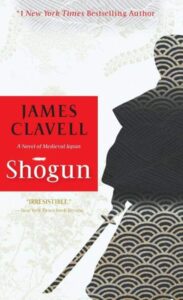
I would like to think so. I mean, that’s just how we roll. Let’s put it out there and do our best to support the community and add value. And we do see that or hear that consistently from people. They like the focus and just the quality and fall behind what we do. We’re a family-run business. My cousin, our fathers are twins. And telling a story of how we grew up, we have a little mini-documentary on our site. If you go to the story section of Consulting Success, you can see we tell our stories. Every interaction that we have with our clients, or the community, we think about it in terms of a family and how we can help people, and we want to be approachable, regardless of our size and how we continue to grow. We’d like to think that it pays off or that it’s creating a benefit to both parties, the people we want to serve, and helping our business.
When did you first know that you were going to launch a business with your cousin?
I was still in high school. I started our first business just coming out of college, a two-year college and then one year in Japan and then finished in another university. So I did a few different programs. We started talking about that when I was in high school, we were actually on a trip in the north of Vietnam. Seven years after Vietnam had opened to tourists or the outside world. And I remember I brought a book about how to start a music label, a record business because my cousin Sam has always been to music. He was a DJ who made music. And I’ve always kind of thought more about marketing and business and communications. And we even create a name for our label as we’re reading this book and talking about it during our trip. We never created a label. We didn’t do anything with that music business idea. But that was kind of the start of us exploring how we might create something together.
But our first business was called Fingertip Media, and it was a web design development business. Back in the day when people were editing Flash websites and all that kind of stuff. I think it was made even before then. But it was a great experience. It taught us a lot. Some people say, “Michael, do you have a lot of formal training around becoming a consultant?” I said, “No, I educated myself. I read a lot of books in my later years of high school.” I never actually read a book until I was probably 15 years old. Not a single book. But something switched and kind of flipped inside. And then I started to read a lot and became very interested in business in the world. And so, as I was studying, we just were applying what we were learning. And when you do that, it’s such a powerful thing, right? When you don’t think that you know everything, when you just are open to consuming and learning and then applying, you learn very quickly what works and what doesn’t work. What we found, and one thing I tell a lot of consultants who are earlier stage, because even if you’ve been, for example, a VP of AT&T, which we had a client, so it kind of rings as one example. They come into the world of consulting, and they have a lot of expertise, but they know nothing about building a consulting business.

But what I often tell clients is, it doesn’t matter how many years you have experienced consulting. You have expertise. And if you have the expertise, it means that there’s a reason why you’re talking to the person on the other side of the table, regardless of how big that company is or how old the age difference or level of success or income. As long as you can add value for someone, then you have a seat at the table. And so even for myself, when I was in my early 20s, I was consulting, again with companies like Panasonic and Dow Jones and others. And it’s like, “What right do you have to be there, Michael? You’re just a young kid.” Well, I had something that those companies didn’t have. I had perspective and insight into North American English-speaking markets. And there I was in Japan, and they had a lot more than I did in many respects. But they were looking for a unique insight that I had. So that’s what I’m always kind of looking at from a consulting perspective is that it doesn’t matter your age or all these other things. It’s just about, can you provide value? Can you help somebody to solve a problem or to reach their desired state faster? And if you have that, then you have the starting ingredients for success.
I’m curious. What happened when you were 15, and you just flipped, and you started becoming a reader?
I’m smiling because I kind of had a sense, Stephan. My intuition was kind of going off that you might ask that question. So I’ll tell you what it was. Well, I’m going to back up just a moment to give you a bit more of the story. I was born in Toronto. At about two and a half years of age, my parents moved us to Israel. So I lived in Israel for about four and a half years, where I grew up. I was surrounded by a lot of different cultures and languages, and people. I then came back to Canada, this time to Vancouver. I felt like a complete outsider. I did not speak English. I was surrounded by a lot of different people. In my high school, I was like the one white kid in a whole kind of area of kids from China and Hong Kong, which I love because I’ve always loved cultures. But when I was young and came back to North America, I felt like an outsider. Because I didn’t know anybody. I didn’t speak the language. And so, where I channeled all of my energy was into sports.

And I was a bigger kid at that time and haven’t grown that much since I was a kid. I developed very quickly, and then when I met people after high school, I saw them many years later. They’re like, “You haven’t changed that much.” I was like, “Yeah, I stopped growing at that time.” I was big as a young kid, but I excelled in sports. Everything that I did was sports, sports, sports, and I just was not interested in academics. I was seated at the back of the class. I would be doodling and scribbling and not paying attention. And as soon as the bell would go, I’d be running out to play rugby, or basketball, or soccer or baseball or whatever track and field, which is very competitive. And then I went to Thailand when I was in grade 10. And I went with my father and my stepmother. And I’ve had the biggest culture shock that I probably ever had in my life. But it was positive. I was just blown away. All of a sudden, I felt like the world was huge. And I felt there was just something. I had a feeling inside of me that I had never had before.
I came back from that trip, and I pretty much stopped playing sports competitively. I did martial arts and other things earlier on, but I pretty much stopped. I still went to the gym and still stayed healthy. Even to this day, exercise is very important. But I all of a sudden switched my focus from sports to arts. I became interested in poetry, reading, photography, and music. Something switched. I don’t know exactly what it was. There’s a lot more out there, and I went down that path. That was the big switch for me. It was that trip. Not long after, I convinced my parents when I was. I think not even 16 to allow my cousin Sam, a few years older than me, to go to Vietnam, just the two of us. So I wasn’t even 16 years old. And the two of us went to Vietnam for a month and a bit. And that was a life-changing experience to see that area of the world and be so young, and I’m very thankful to have had that opportunity.
Very cool. It’s not like something switched on you. It’s like something awakened.
I think that’s a really good way to look at that situation because it felt like that. I hadn’t changed that much. I mean, I grew a beard for a period of time as a way to kind of express myself. I thought when I would finish high school, and I had no interest in going to college, I thought I would just travel. I would go to different places, and I had no idea really what I wanted to do. But as I got closer to the end of high school, I recognized that no, I think what I want to do is get involved in the business. And that’s really what Sam and I then started to do is to launch our first business. And we’ve now built and sold multiple companies together over the years, and it’s just been a lot of fun.
A positive mindset amid uncertainty is a crucial entrepreneurial trait. To get there, one must be equipped with years of learning and experience. Share on XHow fortuitous that the two of you went at such a young age for you to go to Vietnam together and bonded and brainstormed and strategized plans for the future together. Very cool.
I feel very fortunate to have a cousin and a business partner to share our successes together. But also, we’re there for each other when you encounter a tough day or a challenge, and indeed, I think anyone in business has plenty of those, right? More than success even, it often feels like, but it’s been a great experience.
Now, there’s something that you said a little while ago when we were talking about the studies that you did internally, and you just kind of mentioned it as an aside like you asked, “Do you meditate or do you journal?” Is there something that you do that helps you to get a higher performance, or better throughput, better revenue, or whatever? I’d like to know from your perspective.
Number one, by far, is exercise. I’ve learned that about myself. I have sleep apnea, which if you look at me and see me in the flesh, you would think is very unlikely. My doctor, several years ago, when I brought this up, he said, “No, there’s no way. You’re slim, young, you don’t have a big neck,” and all the typical signs and symptoms, the only thing that I had is that I snore. And he’s like, “You don’t need to do the test.” I’m like, “No, I want to do the test.” My stepfather passed away from Alzheimer’s several years later, and I had a conversation with my mom. I said, “I always wake up, and I feel tired. I don’t feel rested,” it was this whole conversation. So I said to my doctor that time, “No, I want to go for a test.” And he’s like, “Okay, fine. But I’m sure it’ll be negative.” I went for the test. And like I said, I have sleep apnea. I had a whole bunch of sleep studies. I have something called idiopathic hypersomnia, which just essentially means doctors have no idea why I often feel tired. And so they said, “You can try a CPAP machine. Most people that use that do feel much more rested in the morning.” I used it; I don’t feel that much more rest in the morning.
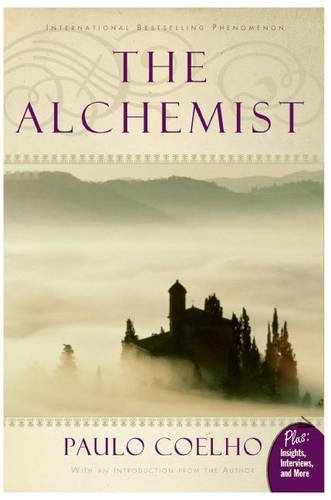
But one thing that I have found that works, and I’ve tried some different supplements, and I wasn’t that interested in going to the prescription route, although I did try one thing; Modafinil. But I didn’t find that to work that well for me. The number one thing that I find works is an exercise in the morning. What’s been interesting through this whole COVID time is I used to go to the gym every morning early, but I stopped going to the gym, mainly because my parents are elderly; I didn’t want to take any chances. So I just started running. And now, one year later, I’ve run through rain and snow, and it was very much running every day. And so, for me, I do find running at the beginning of the day allows me to do a few things. But a couple of standouts is, of course, I get the health benefits of it. So sweat and cardiovascular, all that kind of good stuff. But I’m also learning because I’m listening to podcasts. You often hear about people multitasking and how it’s not possible to multitask.
This is one instance where I do truly multitask because I’m accomplishing my health and exercise kind of requirements are what makes me feel good. But I’m also learning new things. And so I get my day started, I come back from that, and I’m energized, I’m inspired, I’m motivated. I’ve learned something new, depending on what I’ve been listening to. But people often say, “Why don’t you just listen to music? I can’t just imagine working out to a podcast.” But for me, maybe if I was just pumping weights, maybe good music to help me to feel more powerful or full of energy. But I just love that opportunity to learn through interviews and podcasts while I’m exercising. So that’s number one.
A healthy diet. I think overall for me, like I have a smoothie in the morning that my wife makes, and we’ve been having this for many years, and we give it to both our daughters. So it’s just healthy stuff in there. I have a salad for lunch. I’ve noticed, keeping very simple lunches and not eating too much helps me to stay focused throughout the day. Another big one that if people haven’t tried, Stephan, but I would highly encourage. Everyone that I’ve given this to has found that it works well is organic matcha green tea. That creates a very nice level of energy and kind of mental clarity and focus for me throughout the day. And I’ve seen this now with many of the people I’ve given it to or talk to about it. So those, I would say, are the big ones. In addition to that is just learning, always trying to learn new things. Whether that’s listening to other podcasts, which is probably my main source of content consumption these days, aside from books. I do read a fair number of books, but podcast for me is a big one. I cut out media; I cut out watching the news many years ago.
Good for you.
Running a consultancy-based business doesn't require a lot to start. It's time and location flexible. Share on XAnd what’s interesting is, it’s hard because I consider myself to be a worldly person. I enjoy learning about the world and what’s going on. But I found that media, and again I stopped watching years ago. I didn’t lose anything. I don’t feel like I know less about the world or less that’s important about the world these days because I can still learn about the world in other ways. But there’s just so much negativity and just so much that you don’t know whether it’s true or not. What I found interesting is that when I started to do that, I noticed our business results improved. I don’t know if there’s any direct correlation, but I just put my energy and focus into other things. I talked to friends who consume a lot of media, and often they’re much more negative. They’re going to talk about this and that. And I just don’t want to spend my time focused on those things when there’s so much more that’s positive out there that I could be spending my time on.
That’s great. I feel the same way. One thing that helped me was, I do a meditation every morning; the Ana Bekoach prayer, it’s a Kabbalistic prayer. I have just gotten so much value out of that. The first line of the prayer that’s all about the power to transform all chaos in the tree of knowledge, good and evil, into miracles in the world of the tree of life. So there are several levels to this. So, first of all, is disconnecting from the tree of knowledge, like you did, and turning off the negative news and connecting to the tree of life, which is all where the miracles and the synchronicities and intuition. That’s where all that is. So that was step one. And then, step two is recognizing that you have the power to transform the chaos of the tree of knowledge of good and evil into miracles, actual miracles in the world of tree life. I’ve been in that step two for a while now, and it’s magic. It’s amazing. So definitely get rid of the addiction to media, to social media, to the news media. It does not elevate your consciousness. It doesn’t connect you to the light. It just connects to the darkness, and that tree of knowledge, and all the good and bad out there in the world, and it’s just an endless, horrible rabbit hole.
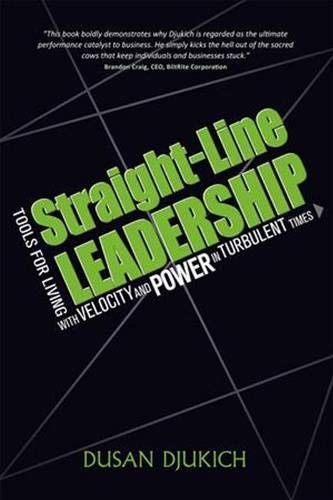
Stephan, there’s one other thing that I’ve done that, if you don’t mind, I’d love to share it because hopefully, it can make an impact for you. One of the things that I’ve learned to do or something that shifted over probably the last couple of years, which has had a pretty profound impact, I started to notice when I had a negative feeling coming up inside of me. Like I might be with one of my daughters or having breakfast, or wherever I was, it doesn’t matter, but I would feel something negative. Before, I just kind of carried that negative baggage, which would impact my thought process. What I switched or what I started to do, I asked myself what caused that negative feeling. Where’s that actually coming from? And what I’ll often be able to trace it back to is, “Oh, Michael, it’s just because you read an email from a client or something, or you talk to somebody, and you don’t have a good vibe with that person.” But what I do is I try and trace where is that negative feeling coming from? And I find that when I do that, I’m able then to very quickly process through it so that I’m able to turn and go, “Okay, that’s why I’m feeling negative. Here’s how to solve it.”
Now I turn my state back to feeling very positive. But the other thing that’s been helpful is that I’m almost tracking this mentally about every negative thought that pops in and then its source. When it happens again, because most of these things do repeat, I can dismiss it or process through it even faster and be like, “Oh, yeah, it’s because there’s no big deal.” Like, “You’ve been fine since the last time that happened, no issue.” And so that’s been very powerful for me, to be able to understand the source of just that negative feeling. I think we all have these things, it might not be something big, but you’ll read something or hear something, or you’ll do something and all of a sudden, it’s inside of you, you have this feeling that doesn’t feel good. And so often, we don’t stop to ask, “Where’s that coming from?” we just try and kind of keep going. But I have found that acknowledging it and understanding its source allows you to process it and allows you to become a stronger person. So that when those things happen, you don’t feel you’re getting knocked down. You’re not in that state of negativity as long because you’re now able to move past it much faster.
Oh, that is beautiful. I love that. And I hope our listeners will take that on board and apply it in their lives. On the other side of it, I think it is also paying attention to your intuition, in terms of things that just feel like maybe they’re the right thing to do, or there’s a little niggling tap on the shoulder metaphysically. And feel like, “I should reach out to this person,” or “I should mention this book to this person.” It’s off-topic, but I should ask them how they’re doing in their relationship” or whatever. Do it, just trust your intuition, because that is not coming from your subconscious; that’s coming from elsewhere, coming from your Higher Power, or whatever you believe, but it’s outside of you, I think.
Different people consume content in different formats.
And I think for those who might be listening, who may not resonate 100% with the concept of Higher Power, I know some people might not connect or grasp that right away, an example that I’ve found very tangible when you work with a client. Before you take on that client, you just don’t have a great feeling about that client. You kind of think, “Ugh, they’re pushing hard on price. This seems like they’re going to be kind of a pain in the backside to work with.” But you still take that client on most likely, because you want the business and money. And then, as you’re working with that client, of course, every single time you end up regretting that you took on that client and the amount of money that you made from that engagement is no longer worth it. And you know it’s not worth it. These are just the kind of things that I find that you are 100% correct, Stephan. In my experience, your intuition is usually right. We often don’t accept it, and we fight it; we put it off. And then usually, when we do, we will regret it. So learning to listen to your intuition and acting on it, I think, are very powerful.
Yeah. Do we have time for a few more questions?
Let’s do it.
All right. What are your favorite books? And they could be anything. It could be novels. It could be books about martial arts, or basket weaving, or scuba diving. It doesn’t matter. What would be your favorite books that you want our listeners to go check out?
Well, so I’ll tell you, the first book that I ever read was Shōgun by James Clavell. And I went from never reading a book, like I used to use Coles Notes to get through school, as the summary versions of books, because I never would read a full book. So that has a special place in my heart, also, because I’ve spent quite a bit of time in Japan, and my wife is Japanese. Before COVID, we would spend about three months there every year. I don’t necessarily know if you’ll need to read that book, but it has a special place in my heart. One that I read early on, which certainly does resonate even today, is Siddhartha by Hermann Hesse and The Alchemist by Paulo Coelho. Those are, I think, very just great books, and ones that I would enjoy even reading again. There’s a book called Straight-Line Leadership by Dusan Djukich. When you hear leadership, you think about teams, executives, and organizations, but this book is not about the leadership of a team. It’s about the leadership of self. And I’ve found that to be a really powerful read. It’s a book that I’m gifted in and share with clients over the years. Those are a few. I mean, there’s lots. I love books. I can tell by looking at your bookshelf and my bookshelf that we both enjoy reading.
Sacrifice doesn’t mean that you cut quality. It means you adjust the structure of what you need based on what you want to accomplish in your life.
The irony is this bookshelf is mostly not my books because we’re staying at an Airbnb here in Tel Aviv. The three books that are facing outward are mine. Those I co-authored or authored. And then there’s a small part of one shelf up there that are my books that were either shipped to me by colleagues or friends or that I brought over with me. But pretty much everybody asks or mentions this, like, “Wow, that’s quite a lot of reading you’re doing.” “Uhm, those aren’t my books.” Funny. But I love those recommendations that you gave. I’m curious what would be a powerful takeaway that you got from The Alchemist?
When I read books like The Alchemist, it makes me think about how I’m spending my time. So often, I think we are just heads down, working on building the business and growing the business and working with clients and doing what we’re doing, without stopping to think about why we’re doing what we’re doing. And books like The Alchemist or even Siddhartha often move my mind to look at what is true happiness and fulfillment. What is it all about? Why am I working so hard if I’m not making sure that I am creating time to enjoy it? Or when I look back when I’m older, will it matter if I’ve achieved this? What will matter to me? That’s the thing, what a book like that does. It gives me a greater perspective on how I’m spending my time. I talk about his concepts with clients that if you imagine that you have a triangle, what entrepreneurs often do is put at the top of the triangle their business. And then they put lifestyle below it.
So they have business at the top and lifestyle below. And then what they do is they have to make sacrifices at the lifestyle level to support the business at the top. And I often encourage myself in my own life, and I do it the other way. So at the top of the triangle, I’ll put my lifestyle. I’ll get very clear about what’s important for me as a person, as a member of the community, and all that other stuff, family, and all the relationships. And then for the business at the bottom, meaning that the business, that’s where I’ll make the sacrifices. And sacrifice doesn’t mean that you cut quality. It simply means you adjust the structure of what you need but based on what you ultimately want to accomplish in your lifestyle. Because if you have a very successful business, but you’re miserable at the top, it’s all pointless, right? It’s meaningless. So I think getting very clear about your lifestyle and your relationships and all the things that are meaningful for you as a person and then putting your business below it. And then really being excited about how can you craft a business? How can you create a business that supports the lifestyle that you want? Those kinds of books help me, and I think others, to get clear on that top part of the triangle.
That’s great. Did you get any benefit from Modafinil? Because that is like a smart drug or nootropic that is kind of like the limitless drug. I know you use that for sleep apnea, but I’m curious.
I don’t remember when I took it. I’m trying to think how long I took it for. It may have been a couple of months. I’ve never been that excited or into the idea of taking prescription drugs. I just try to always avoid that stuff as much as I can. I always prefer the more natural route. I did some research on it, and I couldn’t find that much negative about it. It seemed like many people in sports and business and students use it; an entrepreneur seemed pretty well accepted. So I tried it, but I didn’t notice anything different. The two things for anyone dealing with something like this that I’ve personally found the most helpful is number one, exercise right at the beginning of the day. I do take some supplements. I don’t know how much of that help, but the organic matcha green tea I find helpful.
Awesome. Cool. Well, thank you so much. This was fun and enlightening as well. If somebody here listening wants to work with you and your firm and learn more from you, where should we send them?
They can go to consultingsuccess.com, the home for everything. And we do have a guide if you are looking to get deeper into the consulting world a free guide. And you can get that by going to consultingsuccess.com/blueprint, and you will be added to some of those autoresponder emails that I mentioned that go deeper into my story and background. I think you’ll find it hopefully amusing but also helpful, and, of course, you can always unsubscribe if it doesn’t resonate. But you’ll get the guide regardless. It’s about 47 pages long. So lots of value in there.
Well, fantastic. Thank you so much, Michael. And thank you, listeners. Now take some action. There’s some good stuff in this that will make a difference in your life, but you got to apply it.

